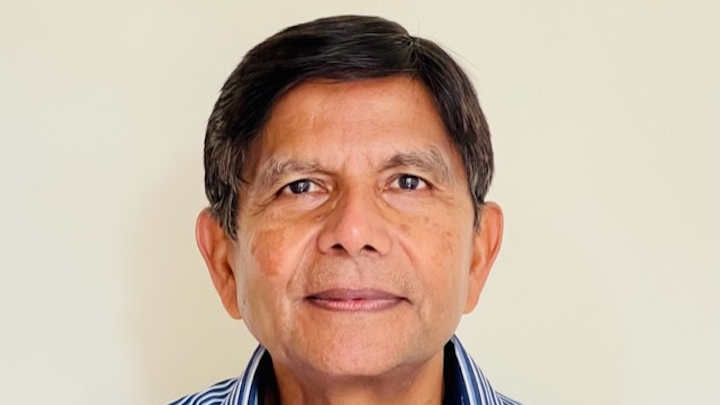A digital approach to training Indian health professionals in mental health
A project involving several institutions around the world is exploring the use of digital tools to raise mental health literacy among Indian health professionals, and combat high rates of self-harm and suicide in the country.

India has one of the highest suicide rates in south Asia, with over 139,000 deaths and 5.75 million self-harm cases in 2019 alone.
Most incidents occur in rural areas where general hospitals offer a chance for intervention, but systemic issues - such as low mental health literacy, inadequate training, stigma, and limited resources - often prevent proper care.
Despite government efforts mandating assessments for self-harm cases, implementation remains challenging due to a shortage of trained professionals and low mental health literacy.
Identifying a solution
Mental health literacy is crucial for improving outcomes, yet it remains low among Indian health professionals.

Professor Vimal Sharma
Vimal is Professor of Global Mental Health Research at The University of Manchester, and Consultant Psychiatrist at Cheshire and Wirral Partnership NHS Foundation Trust.
Like many low- and middle-income countries (LMICs), India lacks robust self-harm surveillance systems, which limits evidence-based policy development despite some local initiatives such as those in Sri Lanka, which are beginning to address this gap.
To tackle this, researchers from The University of Manchester and Indian partners are training non-specialist staff and using mobile health tools to improve mental health literacy, expand access to care and strengthen suicide prevention efforts in south India.
A global partnership
The SAMASTH project (Systems Approach for Management of Self-Harm by integrating Surveillance with mental health Training in General Hospitals) is rooted in a 12-year equitable partnership between Indian and UK institutions, focused on improving mental health care through innovative research and implementation.
Central to the SAMASTH initiative is the Global Mental Health Assessment Tool (GMHAT) - a mobile health application developed and validated by Professor Vimal Sharma in 2000. GMHAT enables non-specialist hospital staff to conduct reliable mental health assessments, significantly improving diagnosis and care planning. It has been adapted into Kannada and integrated into hospitals across India.
The project also benefits from a robust digital training infrastructure, and the team has developed a digital e-Self Harm Register (e-SHR) and training modules in Kannada. These tools will help identify probable cases of self-harm and map care pathways for patients and their families.
This India-UK collaboration offers a scalable, evidence-based model for strengthening mental health systems in low-resource settings. By combining surveillance, training and digital innovation, SAMASTH aims to reduce suicide rates and improve care for vulnerable populations.
Self-harm assessments
The team is implementing and evaluating an integrated programme at three state hospitals in South India to strengthen mental health care.
This includes using the e-SHR for self-harm surveillance, training non-specialist staff with GMHAT for mental health assessments, improving clinical staff literacy, and embedding structured training into hospital professional development systems.
The future
The research team is working towards improving outcomes at a patient, hospital, and regional and national level by:
- Improving mental health literacy among hospital staff.
- Establishing local self-harm surveillance systems.
- Using mobile health (mHealth) tools to support task-shifting strategies.
- Applying systems thinking to understand the broader impact of these interventions.
The research aims to increase mental health assessments and service engagement among self-harm patients, reduce repeat incidents, and enhance healthcare professionals’ skills in managing self-harm.
Learn more about the SAMASTH project.
